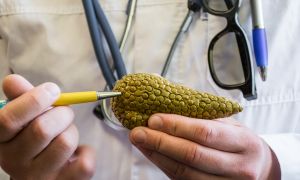Advertisement
To help prevent digestive diseases, doctors recommend the following:
- Chew food thoroughly, and don't overeat.
- Get plenty of fluids. Good sources include water, broth, and soups.
- Eat a variety of foods that contain dietary fiber. The recommended amount is 25-30 grams per day.
- Limit your intake of fats and alcohol.
- Avoid raw shellfish if you're not sure the source is a safe one.
- Exercise daily.
- Wear clothes that fit properly; clothes that are tight on the abdomen can cause stomach problems.
- Wash your hands with soap and water or hand sanitizer before preparing food and eating.
- Wash your hands thoroughly after using the bathroom, changing diapers, handling garbage, handling raw meat, and handling pets or their waste.
Hepatitis A and B can be prevented with vaccines. Other methods for avoiding hepatitis may be useful.
Some digestive diseases cannot be prevented, such as Crohn's disease. If your digestive problems presist despite these tips, consult your doctor.
Continue Learning about Digestive Diseases
Important: This content reflects information from various individuals and organizations and may offer alternative or opposing points of view. It should not be used for medical advice, diagnosis or treatment. As always, you should consult with your healthcare provider about your specific health needs.



